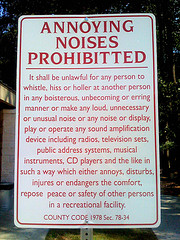Repealing Section 230 Would Harm Online Communities, Not Address Online Harassment

Credit: Jon Dawson (CC BY-ND 2.0)
Online community professionals in the U.S. are quite fortunate, legally-speaking, as compared to our counterparts in other countries, like the United Kingdom and Australia.
Section 230 of the Communications Decency Act is a big reason for this. It might be the most important law on the books that relates to our work. It discourages frivolous lawsuits and allows us to host critical speech of the powerful, without serious fear of a lawsuit.
The Delfi ruling is a reasonable example of what can happen without it. A large company, and a rich man, demanded that an Estonian news outlet remove not only comments that vaguely threatened violence, but also comments that referred to the man as a “bastard” or a “rascal.” Even after they removed the comments, the company and man further demanded damages and, when rebuffed, sued the news outlet. A 9 year legal battle ensued – and the news outlet lost.
Read More








 I was on a call yesterday with
I was on a call yesterday with  I recently asked
I recently asked